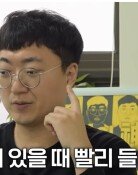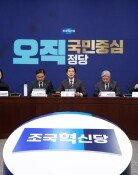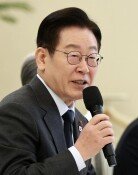[Editorial] Prosecution's politically biased investigation
[Editorial] Prosecution's politically biased investigation
Posted January. 17, 2001 19:47,
How long will the prosecution continue to conduct a politically biased investigation? The prosecution announced that it would not summon politicians who were alleged to have received money from the Agency for National Security Planning (NSP), the former state intelligence organization, to finance their 1996 parliamentary election campaigns, reversing its original position to investigate all suspects. This suggests that the state prosecution has consistently taken political considerations into account in the course of investigating the illegal campaign funding scandal. Since political motivations appear to have been involved in the process and the timing of the investigation, the prosecution must have been forced to bear an increasingly heavy burden, the result being that it is now seemingly obliged to back away from subjecting all politicians to close scrutiny.
Of course, the prosecution has its own reasons for pointing out that most politicians suspected of having received the funds did not know that the money was provided by the NSP, and therefore that their activities did not constitute a crime. If this is the case, why did the prosecution launch a probe into the scandal in the first place? And why did the prosecution leak a list of over 180 politicians who allegedly received NSP funds if their activities did not constitute an offense?
Suspicions also surround the timing of the prosecution's statement. It is hard to miss the fact that the prosecution's policy reversal came shortly after Rep. Kim Chong-Hoh, acting president of the United Liberal Democrats, and Kim Yoon-Hwan, president of the Democratic People's Party, were also found to have received NSP money. The two politicians, members of the ruling coalition, were not included in the original blacklist, deepening suspicion that they were intentionally removed from the list presented by the prosecution.
In short, the prosecution may have been obliged to reverse the initial direction of its probe owing to fears that with the ongoing progress of the investigation, the prosecution's apparent scheme to bring down the opposition party would be gradually unveiled and that this could have an adverse impact on the ruling party politicians.
A more serious issue is at stake if the prosecution moves to abandon its investigation of opposition politicians in the face of the Grand National Party (GNP)'s counter-offensive against the ruling camp. The GNP recently renewed its demand for simultaneous probes into two slush funds, one valued at as much as two billion won, that President Kim confessed to having received from former president Roh Tae-Woo. In the event the prosecution does give up its probe, after defining the illegal election funding scandal as a crime that undermines the nation's very foundations, it would be abdicating its responsibility as an impartial body.
In this context, the prosecution's investigation should not end anticlimactically by looking only into the primary suspects in the scandal, namely Rep. Kang and ex-NSP deputy director Kim. Few believe that the two men alone handled more than 100 billion won. It is wrong for the prosecution to put asides its probe before completing its investigation of Rep. Kang.
The prosecution must uncover who amassed the huge New Korea Party campaign fund, how the money was distributed among party members, and who is ultimately accountable for the scandal. Otherwise, the prosecution will not be able to avoid harsh criticism that its investigation was intended from the outset only to undermine the opposition.







